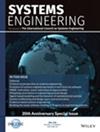对工业4.0技术最佳实践和案例历史的跨部门回顾
IF 1.6
3区 工程技术
Q4 ENGINEERING, INDUSTRIAL
引用次数: 1
摘要
本文章由计算机程序翻译,如有差异,请以英文原文为准。
A cross‐sectorial review of industrial best practices and case histories on Industry 4.0 technologies
Industry 4.0 (I4.0) was introduced in 2011, and its advanced enablers strongly affect industrial practices. In the current literature, while several papers offer general reviews on the topic, contributions exploring the evidences coming from the implementation of I4.0 in multi‐sector Small and Medium Enterprises (SMEs) and large enterprises are few and expected. To address this gap, a comprehensive review of the main I4.0 enabling technologies is conducted, focusing on implementation experiences in companies belonging to different sectors. Forty (40) real case studies are analyzed and compared. The results show that 63% of the identified applications involve large enterprises in the transport sector, that is, automotive, aeronautics, and railway, adopting a structured set of enabling technologies. SMEs engaged in I4.0 projects primarily belong to the mechanical engineering sector, and 37% of such projects deals with the preliminary feasibility analysis of introducing a single enabling technology. Conclusions and trends guide researchers and practitioners in understanding the implementation level of I4.0 technologies.
求助全文
通过发布文献求助,成功后即可免费获取论文全文。
去求助
来源期刊

Systems Engineering
工程技术-工程:工业
CiteScore
5.10
自引率
20.00%
发文量
0
审稿时长
6 months
期刊介绍:
Systems Engineering is a discipline whose responsibility it is to create and operate technologically enabled systems that satisfy stakeholder needs throughout their life cycle. Systems engineers reduce ambiguity by clearly defining stakeholder needs and customer requirements, they focus creativity by developing a system’s architecture and design and they manage the system’s complexity over time. Considerations taken into account by systems engineers include, among others, quality, cost and schedule, risk and opportunity under uncertainty, manufacturing and realization, performance and safety during operations, training and support, as well as disposal and recycling at the end of life. The journal welcomes original submissions in the field of Systems Engineering as defined above, but also encourages contributions that take an even broader perspective including the design and operation of systems-of-systems, the application of Systems Engineering to enterprises and complex socio-technical systems, the identification, selection and development of systems engineers as well as the evolution of systems and systems-of-systems over their entire lifecycle.
Systems Engineering integrates all the disciplines and specialty groups into a coordinated team effort forming a structured development process that proceeds from concept to realization to operation. Increasingly important topics in Systems Engineering include the role of executable languages and models of systems, the concurrent use of physical and virtual prototyping, as well as the deployment of agile processes. Systems Engineering considers both the business and the technical needs of all stakeholders with the goal of providing a quality product that meets the user needs. Systems Engineering may be applied not only to products and services in the private sector but also to public infrastructures and socio-technical systems whose precise boundaries are often challenging to define.
 求助内容:
求助内容: 应助结果提醒方式:
应助结果提醒方式:


